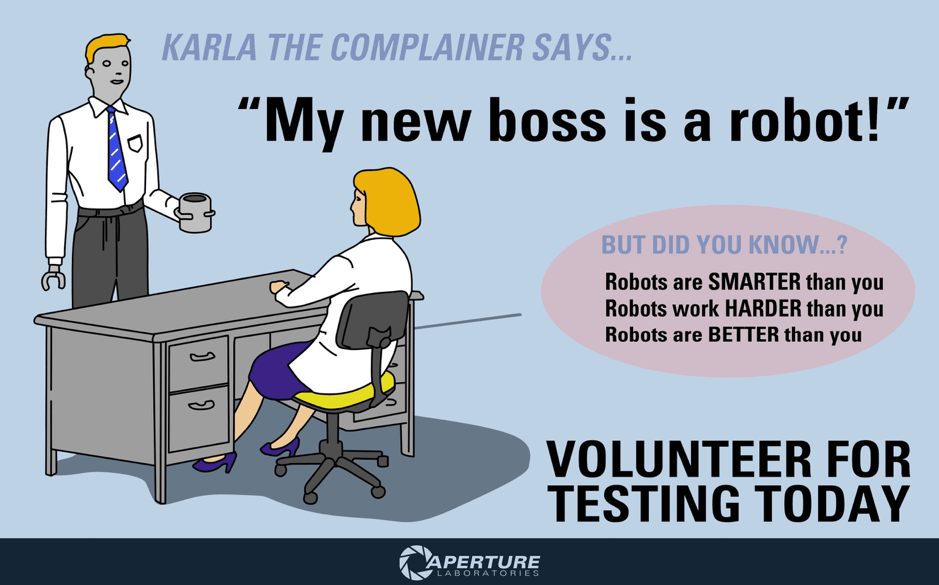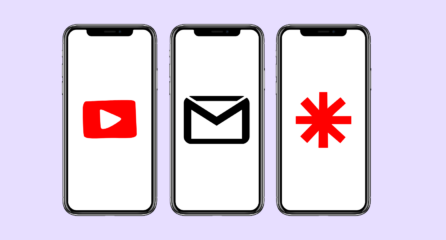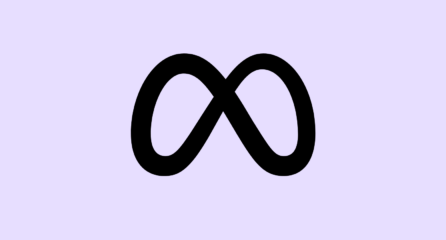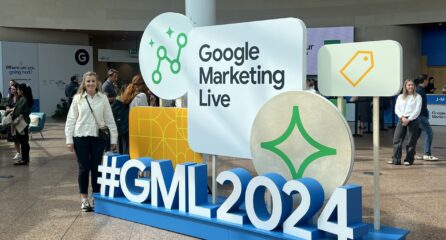Whether we like it or not, our lives are becoming more automated. From customer support chatbots to the dreaded supermarket self-service checkouts, our day-to-day tasks are increasingly dominated by machines.
So it’s normal to assume that the end is nigh for pay per click marketing – a channel which has always relied on some degree of automation.
Not quite. In this article, we’ll explain why it’s still crucial to have a trained human eye on your PPC campaigns – no matter how tempting it is to leave your campaigns in the hands of PPC automation tools.

(Image source)
Why can’t I automate everything in PPC?
Automation already plays a big role in PPC. Yet regardless of how much automation can help a PPC campaign (and it can!), one thing remains true: Automation cannot drive your account optimisation strategy.
You still need expert humans to effectively manage automation and leverage it to grow your accounts. The human element is what sets a PPC account apart from the competition.
Why? Because PPC management isn’t the same for every account. Business goals are different, budgets vary massively, and stakeholders want different levels of analysis and reporting. There is also the need to be agile and respond quickly to your shifting business priorities.
While Google and Facebook now offer various “campaign types” to fit a huge number of business types, there will always be aspects of these that don’t work perfectly for your needs. No automated strategy will work for everyone 100% of the time.
The best approach to automation is to understand how it can help you make time for the more sophisticated tasks that will have a bigger impact on your bottom line.
Let’s start by looking at what automation cannot do.
The Human side of PPC

The most successful PPC advertisers will utilise the strengths of automation but use their own intelligence to take results to the next level.
While automation and machine learning allow for far smarter ad campaigns, they still need a well-considered, human approved strategy to deliver results. For successful Google ads optimisation, a skilled PPC account manager needs to manage the following aspects:
1. Topline strategy
There is no automation tool in place that can plan out the overarching strategy behind your PPC campaign. While automation can help a strategy come to fruition, only a human can plan your budgets and targeting in relation to your business offering and goals.
2. Tracking
Automation is nothing without correct tracking. For Google to understand your business goals, whether they’re online sales, leads or sign-ups, your website needs to be tagged up accurately. The worst thing you can do is allow Google to start automatically “optimising” your account for areas that don’t deliver you any value at all.
3. Split Testing
Smart bidding is one of Google’s main automated services, and uses machine learning to optimise for conversions or conversion value in each Google Ads auction. However, the algorithms behind smart bidding are still learning and need data to be segmented to get the best results.
To get this functionality to work in your favour, you should split test your target cost per acquisition (CPA) campaigns by device. This isn’t done as standard in smart bidding, so you’ll need to manually organise your campaigns by desktop, mobile and tablet.
The more data the algorithm has about the specific goal to optimise for, the better your results will be. Always remember to think about how you can give automated tools the best possible data to work with.
4. Ad Creation
While creating and testing new ads is another area that automation can assist with – it cannot completely overthrow it. Only you truly understand your business offering and can write ad copy that projects your core messages. This is still a cornerstone of PPC.
You can let machine learning driven responsive ads decide which users get which messages at what time, but it is still up to you to dig into the data, test new copy and remove the poor performers.
5. Data interpretation
Then there’s the data. All that lovely PPC data. Without it, machine learning wouldn’t exist, but it still needs to translate into ROI for you. You need to keep on top of your product margins, return on ad spend and larger business goals, making sure that all this marketing activity is impacting your bottom line.
And then, what about improving the results? What are the best areas for growth, and which campaign types and strategies will best achieve those goals? Those decisions are best made by humans who understand what the data means for their specific needs.
What Should I Automate in PPC?
Now we’ve looked at what automation can’t do, it’s time to look at what it does offer.
PPC is full of little tasks that take a long time, and this is where automation can come in very handy. A good rule of thumb is to think about which tasks take the longest and ask yourself: how can I make these shorter? For example, some of the main tasks we automate in PPC are:
1. Search terms reports
If you spend hour upon hour sifting through search terms reports, then these manual tasks can be automated with Google Ads scripts. Tasks such as negative keywords and keyword research can be automated easily, saving you a lot of time. (See automation using Google Ads scripts below)
2. Bidding
Embracing Google ads’ automated bidding strategies such as eCPC (enhanced cost per click) and Target CPA (cost per acquisition) allow you to tap into all of Google’s signals of how likely a user is to convert. Pure manual bidding limits what you can deliver and can actually hinder results.
The trick is to think of these strategies as bidding assistants rather than full replacements. Remember, this isn’t a silver bullet. Test these bidding strategies using campaign experiments to see if the results improve. Only you can know if the CPA you have is actually profitable for your business, and you will always need to delve into the data and tweak things to improve overall performance.
3. Reporting
Manual reporting typically drains a huge amount of time, so you should always automate this where appropriate. Google Data Studio is a treasure trove for reporting, with plenty of templates ready to be plugged in to your account.
Setting up a daily dashboard to see an overview of your results allows you to keep on top of your key metrics without having to spend time digging into the data. For more detailed cross channel reporting, Supermetrics can connect to a huge range of marketing platforms and allow you to pull all your metrics into one place. If you aren’t automating your reporting, do yourself a favour and start now!
Automation Using Google Ads Scripts
For those who want to get serious about automation, Google Ads scripts offer the best way to revolutionise the way you manage your campaigns.
From bid management and account monitoring to keyword research and ad disapprovals, these PPC automation scripts can save hours on managing your daily account tasks. At Loom, we use a variety of scripts to automate our PPC campaigns, however, there are two in particular that help us with almost every account we manage.
N-Gram Scripts for Keyword Research
N-Grams are used for keyword research and search query insight. (This article talks in more detail about how N-grams work) In short, this script allows you to see the power that certain phrases have within your search terms, without the manual sifting process.
For example, the search phrase “PPC agency bristol” has two 2-gram phrases (“ppc agency”, “agency bristol”) and one 3-gram phrase (“ppc agency bristol”). By looking at which specific phrases drove conversions, you can find new keywords and ad copy ideas to help drive your campaign forward.
Let’s say you see a 4-gram phrase of “PPC agency for SMEs” converting more than any other over the last 6 months, it’s a good idea to use this as a keyword and tailor your ad copy for that search intent.
This is a perfect example of how automation combined with human management can have a positive impact on your PPC account.
Auto-Add Negative Keywords
Another useful script is the Auto-Add Negative Keywords from Automating AdWords. This allows you to define a list of positive keywords that your search queries must contain, and anything outside of those limits is added as a negative keyword.
For Shopping and DSA campaigns, this is a lifesaver for saving time on stripping out irrelevant search terms, saving you from wasted spend without having to use hours on the task.
Going Above Automation for PPC Campaigns
It’s clear that automation is crucial for the success of modern PPC accounts. Without it, your campaigns will sink as your competitors move forward. However, it’s crucial to know how to leverage automation to your benefit.
By saving time on mundane optimisation tasks, you can dedicate more effort into making changes that will enhance the overall health of your account.
For example, you can optimise your strategy to grow your website’s overall results by:
- improving the conversion rate of your landing pages
- analysing your attribution model
- using PPC data to influence your other marketing channels
The simple fact is that while PPC management is evolving – PPC Managers are still vital to an account’s success. If anything, they play an increasingly important role in strategic PPC account management – especially with large and complex accounts.
Paid Search at Loom
At Loom, our dedicated biddable media team can help you get the most out of your PPC account. We work across Google and Bings.
Our human approach to campaign management combined with a forward-thinking take on automation ensures your campaigns are managed proactively and in line with your business’ bottom line.
For more information on how to effectively leverage automation in your PPC account, contact our dedicated Paid Search team today. Call us on 0117 923 2021 or email us at [email protected].





